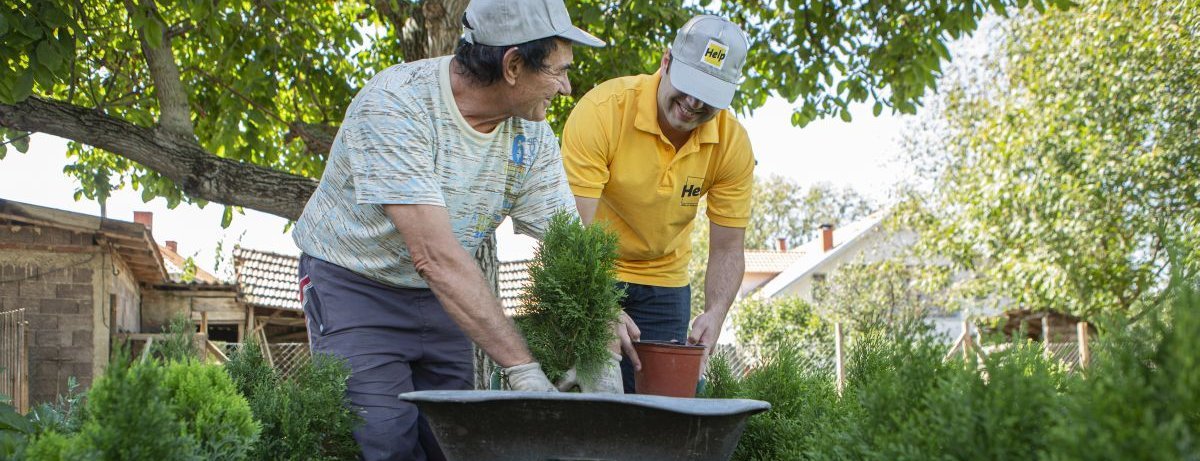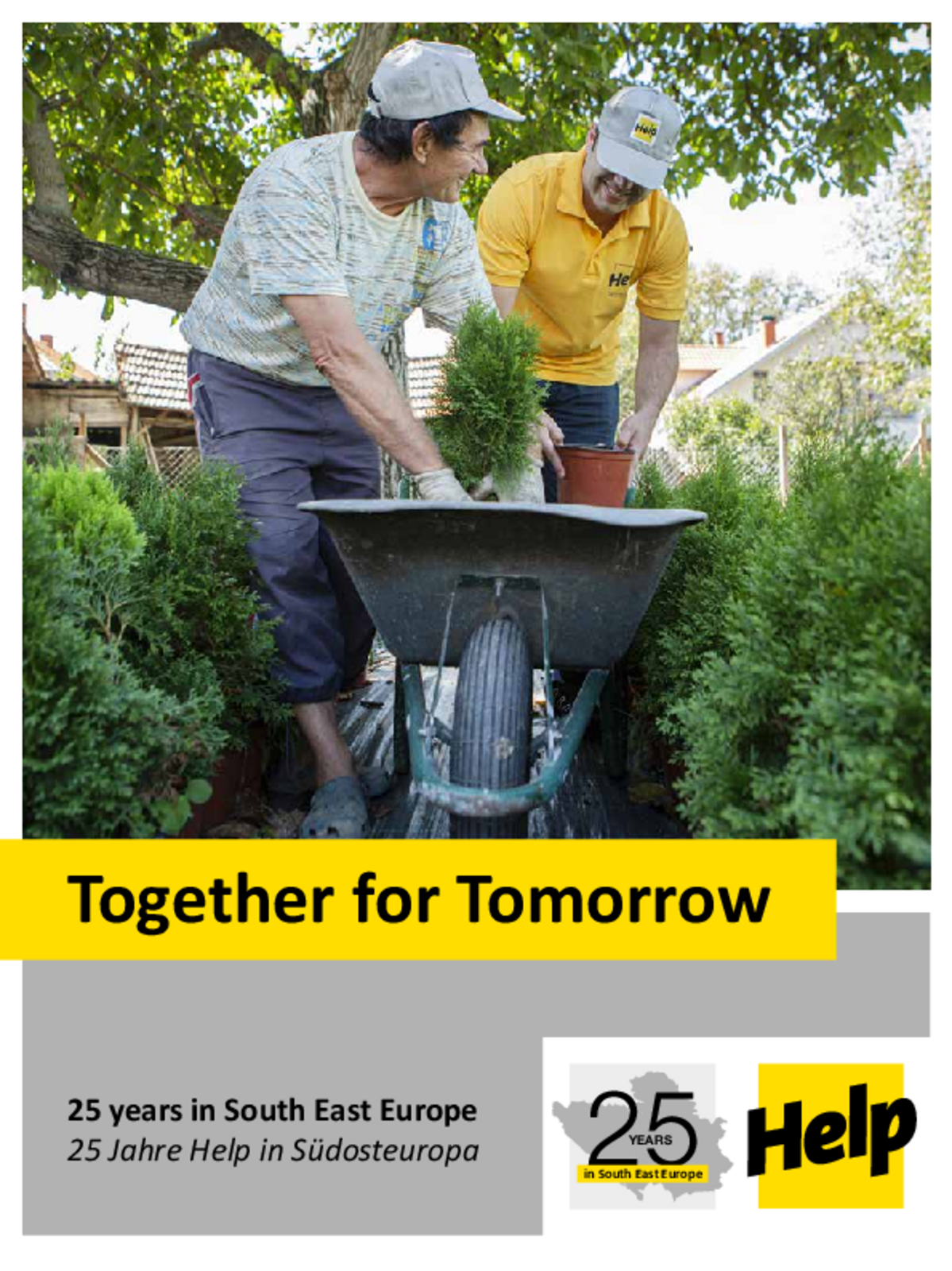Do you have questions about our work in Southeast Europe?
Julia Brückner
Regional Representative Southeast Europe/Ukraine

For nearly three decades, Help has been providing emergency relief, rehabilitation, and development projects in Southeast Europe (expanding to Ukraine in 2021).
We support emergency response and sustainable development cooperation to empower vulnerable populations in fostering self-reliance and making a comprehensive and tangible impact across the region.

Help is an organization that works around empowering individuals and communities in Southeast (and Eastern) Europe, aiming to build resilience and skills for a better future. Through economic initiatives for employment and self-employment, vocational training and knowledge transfer, Help has supported over 17,000 people in achieving regular income and improving their quality of life. Additionally, Help has improved housing conditions for at least 9,000 families, enhancing their overall living standards and fostering community development. By providing tailor-made training and education to over 25,000 individuals, Help has increased their employability, creating opportunities for sustainable livelihoods.
Help facilitates the coherent linking of humanitarian and development cooperation based on the principle of empowerment in Southeast and Eastern Europe, and worldwide.
Providing emergency assistance, rehabilitation, and development projects to support refugees and socially vulnerable groups Help established itself as an experienced partner to local and government structures and institutions in the region. Help is operating country offices in Albania, Bosnia and Herzegovina, Kosovo, Montenegro, Serbia and Ukraine and implements projects through local partners in Armenia, Georgia, Moldova, and North Macedonia.
In 2023, Help established a regional office in Belgrade, Serbia, to share expertise and methodologies to efficiently design and manage projects, focusing on those in need, and driving our regional approach forward.
In cooperation with international donors’ communities and local stakeholders, Help supports the region’s long-term strategic goals towards EU integration in line with the United Nations’ 17 Sustainable Development Goals.

Southeast and Eastern Europe are facing numerous political, economic, and social challenges. Several countries are still struggling with political and ethnic tensions. The region is also dealing with high unemployment rates, economic disparities, and heavy reliance on remittances. Some countries are candidates for membership in the European Union, while others are in negotiations.
Ukraine is still facing war and humanitarian crises while neighboring Moldova is confronted with an influx of refugees and economic burdens for both the local population and refugees. Conflicts, the movement of refugees and migrants as well as the emigration of citizens have significantly impacted Southeast and Eastern Europe, posing a threat to the region's prosperity and its committed progress towards the EU.
Economic challenges include high unemployment rates, economic disparities, and dependence on remittances. The emigration rate from the six Western Balkans countries alone has increased by 10% over the past decade, resulting in one-fifth of the population residing abroad, posing severe developmental challenges. Kosovo alone is facing the highest percentage of youth unemployment rate reaching 21%.
The total youth population in the Western Balkans is around 3.6 million, which is roughly 21% of the total population, with many considering leaving due to the complex socio-economic and political situation.
In such an unstable environment, Help's mission is to empower disadvantaged population groups, youth, women, disabled, and national minorities to help themselves and create a world where need, poverty and social injustice have been overcome.

Kerim, a radiology engineer from Bosnia and Herzegovina, started growing mushrooms and medicinal fungi as a hobby in 2013. By 2020 he decided to turn it into a business venture by officially registering his small business. He focused on cultivating gourmet and medicinal mushrooms and then processing and selling them as medicinal products like teas, capsules, and extracts.
Initially, Kerim faced challenges in his business due to the limited and inadequate workspace and struggled to find reliable suppliers for quality raw materials. Moreover, the absence of local laboratory equipment providers in Bosnia and Herzegovina led him to source equipment from abroad.
In 2023, Kerim received assistance from Help in equipment and building materials to upgrade his workspace. This support allowed him to expand his workspace, establish a laboratory for product manufacturing, and enhance his business. Help’s assistance not only benefits Kerim’s enterprise but also aids in the economic empowerment of at-risk young people.
Thanks to Helps’ assistance I have expanded production capacities, increased storage space, and enhanced the area for laboratory substrate preparation.
Kerim, Entrepreneur from Bosnia

Julia Brückner
Regional Representative Southeast Europe/Ukraine
